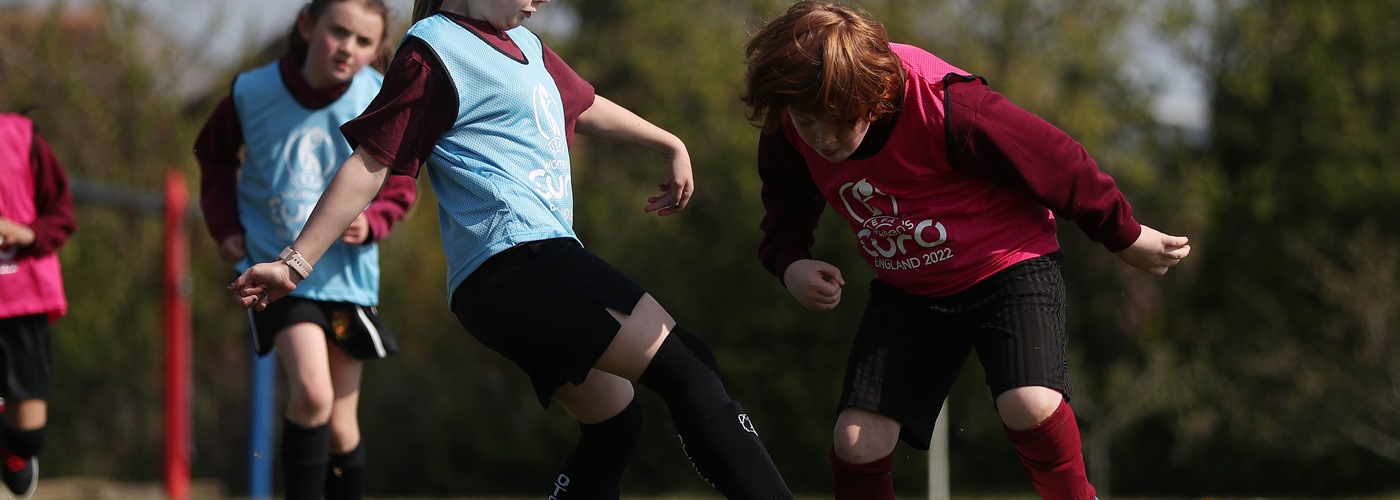In this second intercepting blog, Paul Holder (The FA’s youth coach developer) offers some tips on coaching interceptions.
1. Look at the skills before, during and after they happen.
Before – with experience, players start to learn to ‘read the game’ or predict what might happen and this leads to them moving into the right position at the right time. This also involves scanning and moving at the same time.
During – what techniques are they using at the point of contact to steal the ball? – it might be just a toe-poke that does the job.
After – how are they going to use the possession? – what options are available and what do they choose. It may be a counterattack or a shot or a dribble or a pass. The quality of these actions is really important. A great interception, for example, can be lost with a poor pass afterward.
2. Play simple directional games.
You can do this with either goals or end lines like 3 v 3 or 4 v 4 or 6 v 6 or futsal and set challenges for the players– ‘Can you intercept rather than tackle’ or ‘can you can predict what happens next’ or ‘can you take advantage of an opponent's mistake’ is often just enough to ‘light the fire’. Then look for chances to praise good examples.
3. Celebrate and praise good interceptions.
Let the players know that it was skilful play. This will motivate the players to try more interceptions.
4. Try not to ‘demonise’ things like tackling and challenging for the ball.
This is still a major part of winning the ball back, but not the main priority.
5. Celebrate and praise blocking shots and crosses.
These are a skilful action and not just brave – certainly if it is planned and we can help players with the techniques involved, like body position and where your hands or feet go.
6. Watch out for goalkeepers ‘cutting out’ crosses or sweeping up behind the defence.
This is still intercepting and skilful.
7. Accept the fact that players will get things wrong when they intercept.
But if they are allowed to try and not be afraid of making a mistake, they will try more to get it right and this will help the players and the team.
8. Use ‘ball in hand’ games (basketball like games).
Tag games as well are all great for introducing and practicing basic concepts. Return to these any time. They are always fun and particularly useful.
Please share your tips below and let me know what you think about the tips above. In the next blog, I will be sharing some intercepting examples.



-

Mark Woodhouse
-
Cancel
-
Vote Up
0
Vote Down
-
-
Sign in to reply
-
More
-
Cancel
Comment-

Mark Woodhouse
-
Cancel
-
Vote Up
0
Vote Down
-
-
Sign in to reply
-
More
-
Cancel
Children